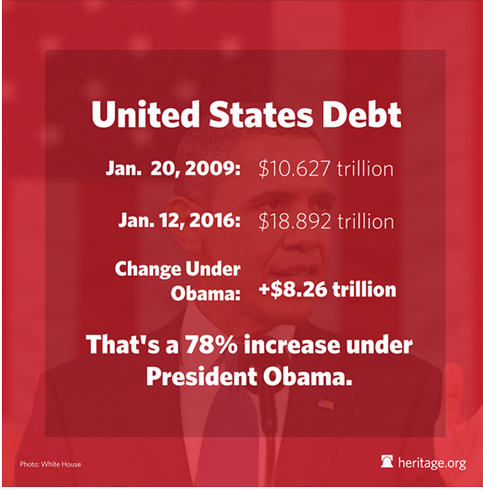On Friday, The Washington Examiner posted an article about this year’s budget deficit. One of the conclusions that can be drawn from the numbers is that so far electing Republicans to the House of Representatives has not had any impact (actually that’s because the lame-duck Democrat Congress passed bills that limited the 2023 Congress’ ability to curtail spending). However, now we have a speaker who seems to be less likely to continue previous shenanigans. The next few weeks are going to be very interesting in terms of the budget process.
The article reports:
The United States is increasingly losing the war against red ink.
Per new Treasury Department figures, the U.S. government is courting a worsening fiscal crisis. Officially, Treasury Secretary Janet Yellen said the federal government ran a $1.7 trillion deficit for fiscal 2023, which ended Sept. 30. That’s up from a $1.4 trillion federal budget deficit posted in 2022.
But as highlighted by the Committee for a Responsible Federal Budget, Yellen’s math ignores another $300 billion in debt incurred by President Joe Biden’s student debt cancellations, bringing the actual total of the deficit under the president to a full $2 trillion. Fix that adjustment for fiscal 2022, and that year’s deficit amounted to a little less than $1 trillion.
This means that in just one year, sans recession and sans war, the federal government under Biden managed to double the deficit by more than $1 trillion. And in large part, it’s all thanks to his embrace of inflation, or at least inflationary spending.
Broadly speaking, the explosion of our national debt, which is now the size of the nation’s annual GDP, is primarily driven by our growth of government spending. While the rest of the nation pays handsomely for inflation with their paychecks, reduced in real terms of purchasing power, our wealthiest generation profits from the pockets of taxpayers. Thanks in large part to the cost-of-living adjustments for our entitlement programs, the three greatest categories of federal budget outlays — Social Security ($1.4 trillion), Medicare ($848 billion), and Medicaid ($616 billion) — grew by 11%, 12%, and 4%, respectively, from just last year.
The article concludes:
The stratospheric surge in bond yields should serve as a warning to Washington that even if the Fed won’t force the government to slow down the spending, the nation’s creditors will not continue to bankroll Uncle Sam without him paying a hefty premium for the privilege. While underlying demographic trends and the inherent, gerontocratic structure of entitlements predestined the nation to a certain fiscal fiasco long before the pandemic, the bipartisan embrace of wartime borrowing, and then Biden’s decision to double down on inflationary policy, have put the country on the path where not even the Fed can fight the deficit disaster on its own.
If Washington won’t listen to the Fed, perhaps it will begin to listen to creditors as the coffers continue to run dry.
We can’t afford to fund wars all over the world. The defense contractors love it, but the country will be destroyed by the debt incurred.



